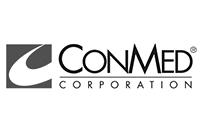"Executive presence is not just about how we present ourselves; it's about how we lead, inspire, and guide performance within our teams."
Rob Salafia
As leaders, it’s our responsibility to equip our teams with the tools, resources, and support they need to perform at their best. In this blog post, we’ll explore seven key strategies for maximizing sales team productivity and driving results.
7 Strategies Every Leader Needs to Know!
1. Goal Setting and Prioritization
Setting clear and measurable goals is the foundation of any successful sales strategy. By defining specific objectives and milestones, sales professionals have a roadmap to follow, keeping them focused and motivated. Prioritization goes hand in hand with goal setting, ensuring that team members allocate their time and energy to high-impact activities that drive results. For example, prioritizing follow-up calls with high-potential leads over administrative tasks can lead to increased sales opportunities and revenue generation.
2. Effective Time Management
Sales professionals often juggle multiple tasks and responsibilities, from client meetings to prospecting and administrative duties. Effective time management techniques, such as time blocking and task batching, can help sales teams optimize their schedules and increase efficiency. Leveraging technology tools like calendar apps and task management software further streamlines scheduling and organization, allowing sales professionals to focus their efforts on revenue-generating activities that move the needle.
3. Continuous Training and Development
Investing in the ongoing training and development of sales professionals is crucial for staying ahead in today’s dynamic market. Regular training sessions and workshops provide opportunities for skill development and knowledge enhancement, empowering sales teams to adapt to evolving customer needs and market trends. Online courses, webinars, and mentorship programs offer additional resources for professional growth and development. By prioritizing continuous learning, sales leaders foster a culture of innovation and excellence within their teams, driving long-term success.
4. Leveraging Technology and Automation
In today’s digital age, technology plays a pivotal role in enhancing sales productivity. Customer Relationship Management (CRM) systems, sales enablement tools, and communication platforms empower sales professionals to streamline their workflows, track customer interactions, and collaborate more effectively with colleagues. By embracing technology and automation, sales teams can work smarter, not harder, and achieve greater efficiency and effectiveness in their day-to-day operations.
5. Collaboration and Communication
Regular team meetings, brainstorming sessions, and cross-departmental collaboration foster creativity, innovation, and teamwork within sales teams. Collaboration tools like project management software and virtual meeting platforms facilitate seamless communication and information sharing, enabling sales professionals to work together more efficiently, even in a remote environment. By fostering a culture of collaboration and open communication, sales leaders break down silos, promote knowledge sharing, and drive collective success.
6. Performance Monitoring and Feedback
Regular performance conversations, goal assessments, and one-on-one coaching sessions enable sales leaders to identify areas for improvement, recognize top performers, and provide targeted support and guidance to individual team members. By leveraging data and analytics, sales leaders gain valuable insights into sales performance metrics, customer behavior, and market trends, empowering them to make informed decisions and drive sales team success.
7. Cultivating a Positive Sales Culture
Recognizing and celebrating individual and team successes, fostering a sense of camaraderie and belonging, and promoting work-life balance are key components of a positive sales culture. Sales leaders play a critical role in shaping the culture of their teams, leading by example and embodying the values of integrity, accountability, and collaboration. By cultivating a positive sales culture, sales leaders inspire their teams to perform at their best and achieve outstanding results.
By implementing these key strategies, sales leaders can empower their teams to work smarter, not harder, and achieve exceptional results. By embracing these strategies and embodying the principles of executive presence, sales leaders can unlock the full potential of their teams and drive sustainable growth and success.





























